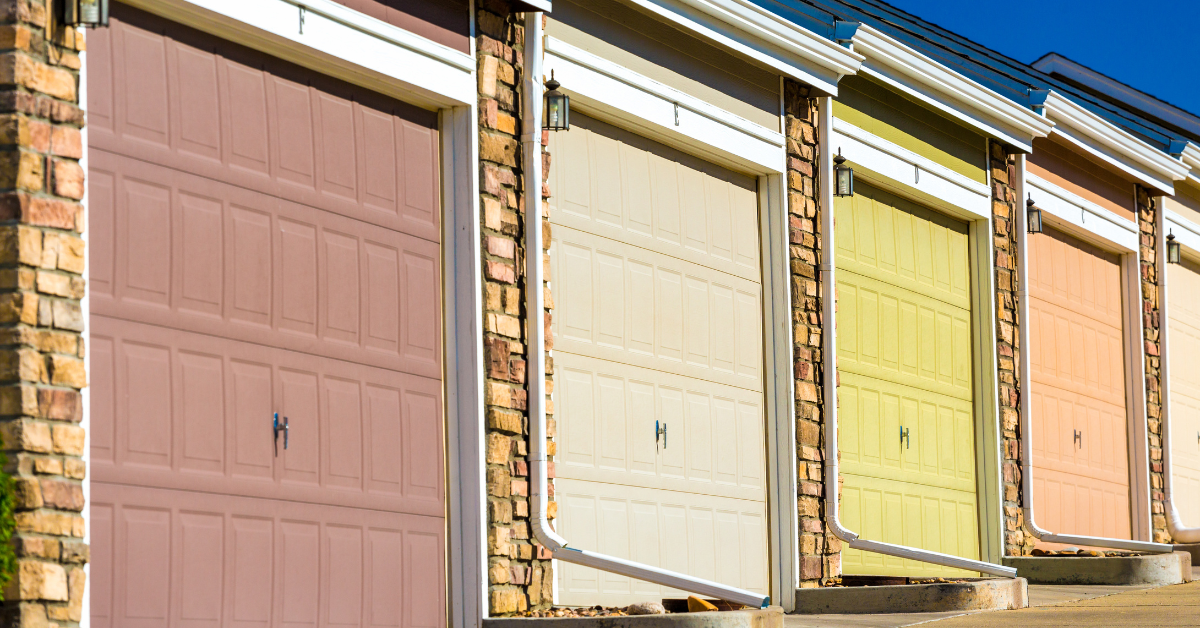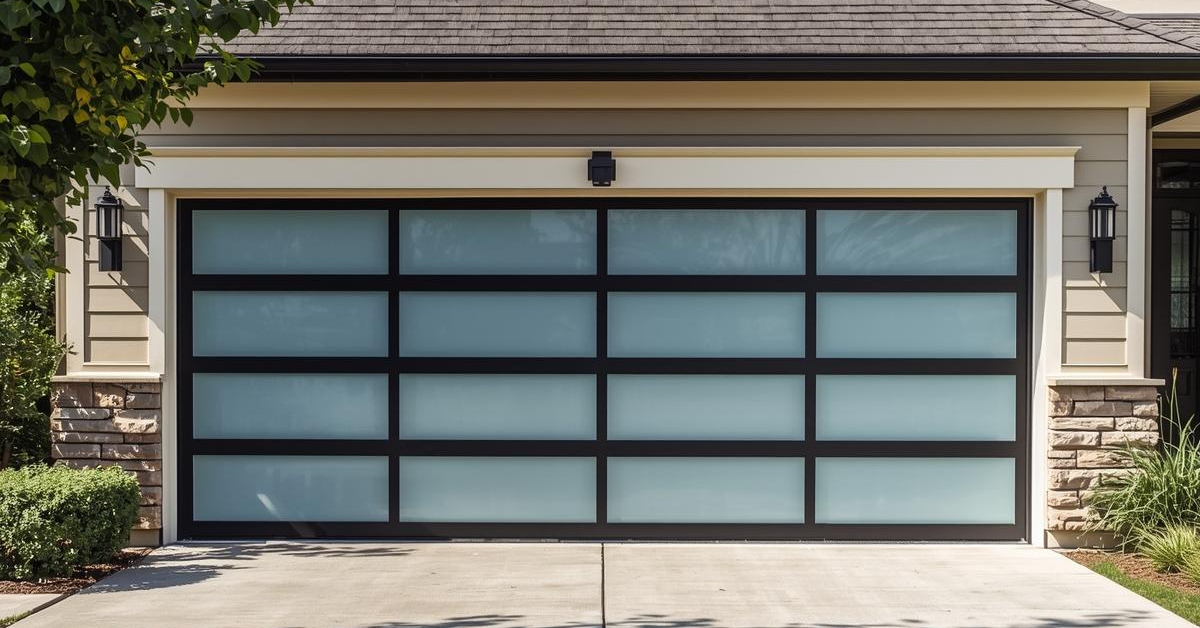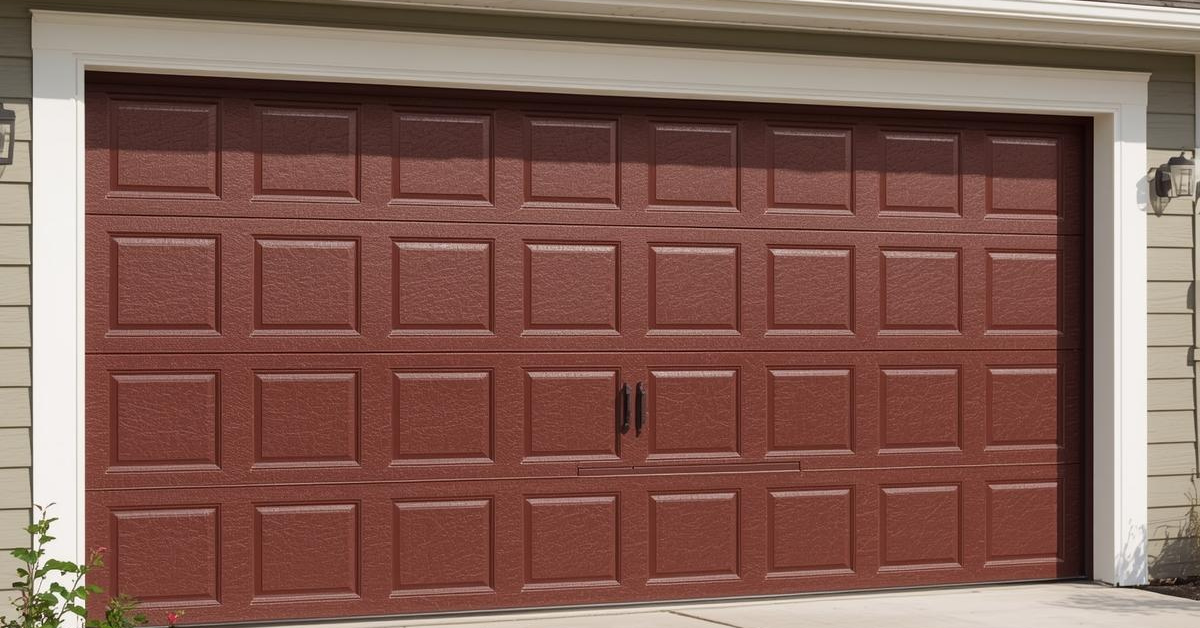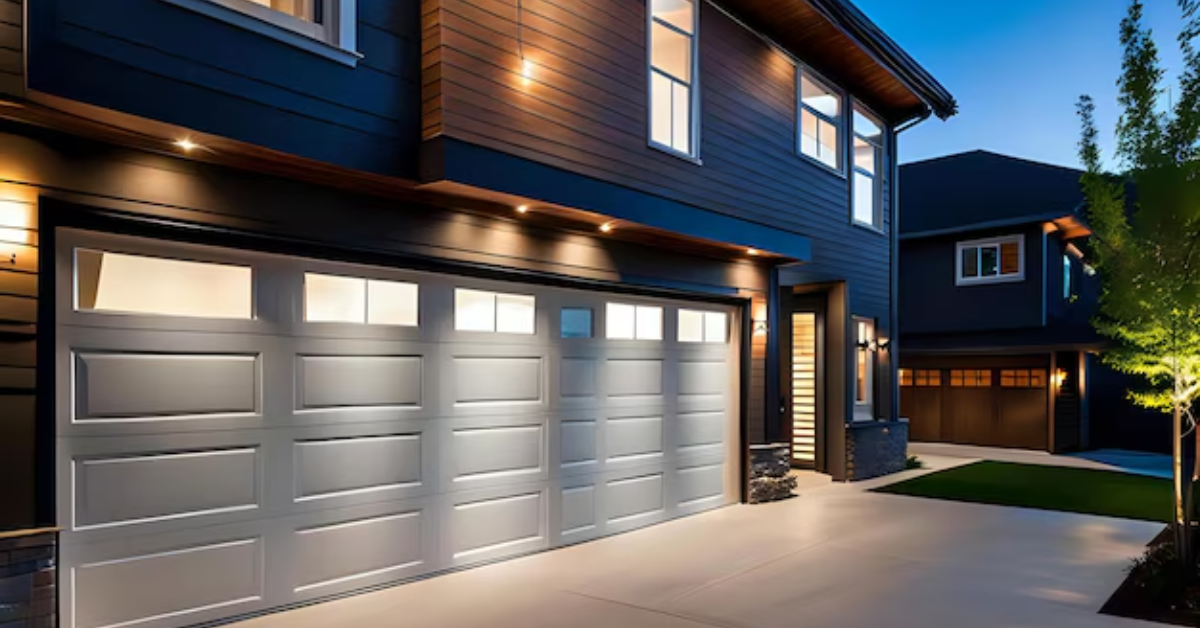Exploring Modern Features and Benefits for Upgrading Your Garage Door
Step into a realm where your garage door becomes more than just an entrance – it transforms into a hub of modern innovation and convenience. In this journey of exploration, we will unveil the myriad modern features and benefits that come with upgrading your garage door. Brace yourself for a revelation that extends far beyond aesthetics, one that enhances your property's security, boosts curb appeal, and simplifies your daily life. Let's explore the evolution of garage doors and uncover the hidden gems of upgrading to a modern marvel. Join us as we open the door to a world of possibilities.
Why Upgrade Your Garage Door?
At first glance, a garage door might seem like a mere entry point to shelter your car and belongings. But it holds a more significant role in your home's overall comfort and security than you might realize. Here's why modernizing your garage door is a step worth taking:
1. Enhancing Curb Appeal:
Your garage door is one of the first things people notice about your home. Upgrading it can transform your home's exterior, instantly boosting its curb appeal. With various styles, colors, and materials available, you can tailor your garage door to complement your home's aesthetics, creating a harmonious and inviting facade.
2. Improving Security:
Your garage often stores valuable possessions, from vehicles to tools and equipment. Modern garage doors come equipped with advanced security features that deter potential intruders and provide you with peace of mind. From smart locks to motion sensors, these features fortify your garage's defenses.
3. Convenience in Everyday Life:
Modern garage doors offer a level of convenience that's hard to match with older models. Imagine opening and closing your garage door with a simple tap on your smartphone or even voice commands. No more fumbling for keys or struggling with a manual door. This convenience streamlines your daily routine.
4. Energy Efficiency:
Many older garage doors lack proper insulation, which can impact your home's energy efficiency. Modern garage doors often come with improved insulation, helping to maintain comfortable temperatures inside your garage. This can translate into energy savings and a more comfortable environment.
5. Increasing Property Value:
Homebuyers today appreciate modern upgrades. By investing in a modern garage door, you not only enjoy its benefits while you live in your home but also potentially increase your property's value. It's an investment that pays off both in your daily life and in the long-term financial picture.
The Evolution of Garage Doors
Garage doors have come a long way since their inception, evolving from simple, utilitarian structures to sophisticated, feature-rich components of our homes. Understanding this evolution helps us appreciate the significant advancements in modern garage doors.
The history of garage doors can be traced back to ancient civilizations, where they served primarily as rudimentary barriers to protect valuable possessions and animals. These early doors were often made of basic materials like wood, stone, or even animal hides.
The concept of an enclosed space specifically designed for vehicles began to take shape in the early 20th century, as cars became more common. However, these early garages typically featured wooden, hinged doors that required manual operation, often by a strong pair of hands.
Traditional Features and Drawbacks of Older Garage Doors
- One of the most significant drawbacks of older garage doors was their reliance on manual operation. You had to get out of your car, unlock and lift the heavy door, and then lower and secure it when you were inside. This process was not only cumbersome but also posed security risks, especially during inclement weather or late at night.
- Another limitation was the lack of design options. Older garage doors were primarily functional and lacked the aesthetic appeal we associate with modern garage doors. Customization was minimal, and homeowners had few choices when it came to style and materials.
- Many older garage doors lacked proper insulation, meaning they did little to regulate the temperature inside the garage. Extreme heat or cold could seep in, potentially affecting items stored in the garage and the energy efficiency of the home.
- Security was a significant concern with older garage doors. Their basic locking mechanisms were susceptible to tampering, making it easier for intruders to gain access to the garage and potentially the home itself.
- Older garage doors often produced considerable noise when opening and closing. They required frequent maintenance to keep them in working order, which could be time-consuming and costly.
Modern Features for Garage Doors
From cutting-edge smart technology to advanced insulation and energy-efficient solutions, these features have revolutionized the way we interact with our garage doors. Let's explore them in detail, understanding how each element enhances convenience, security, and functionality.
1. Smart Technology
Smart technology has completely changed the garage door industry. With smartphone apps, you can open and close your garage door remotely, making it convenient when you're arriving home with groceries or packages. Some systems even offer voice control, allowing you to use simple voice commands to operate your garage door.
2. Enhanced Security Features
Modern garage doors prioritize security. Advanced locking mechanisms and sensors ensure that your garage remains secure. For instance, if an intruder attempts to force open the door, sensors can trigger an alarm or alert you on your smartphone. Having this extra safeguard in place allows you to relax, even when you are not at home.
3. Insulation
Insulation is a vital component of modern garage doors. The garage stays cooler in the summer and warmer in the winter thanks to this helpful feature. This not only creates a more comfortable environment but can also help reduce energy costs by preventing extreme temperature fluctuations.
4. Energy Efficiency
Energy efficiency is a growing concern for homeowners, and modern garage doors have stepped up to address this. Many contemporary doors are designed with energy-efficient materials and construction, helping to conserve energy and reduce heating and cooling expenses. Some models also come with weather seals to prevent drafts, further enhancing energy efficiency.
5. Noise Reduction
Older garage doors often produced loud, disruptive noises when opening and closing. Modern doors are engineered for quiet operation, using quieter motor systems and smoother mechanisms. This is especially appreciated in homes with bedrooms or living spaces adjacent to the garage.
6. Battery Backup
Power outages can be inconvenient, especially if they prevent you from accessing your garage. Battery backup systems are standard on many newer garage door opener models. In the event of a power failure, these backup batteries ensure that you can still open and close your garage door.
7. Improved Durability
Modern materials and manufacturing techniques have made garage doors more durable than ever before. They are better equipped to withstand the elements and daily wear and tear, ensuring a longer lifespan and less need for maintenance.
8. Stylish Design Options
Beyond functionality, modern garage doors offer a wide range of design options. You can choose from various materials, colors, and styles to match the aesthetics of your home. Whether you prefer a classic, carriage-style door or a sleek, contemporary design, there's a modern garage door to suit your taste.
Benefits of Upgrading Your Garage Door
Upgrading your garage door to a modern, feature-packed model offers a multitude of advantages that extend far beyond mere aesthetics. We’ll see the compelling benefits of investing in a modern garage door, encompassing enhanced curb appeal, increased property value, bolstered safety, cost savings, and unparalleled convenience.
- Modern garage doors have a transformative effect on your home's exterior. With a wide array of stylish designs and materials available, you can choose a door that complements your home's architecture and adds a touch of sophistication. The result? A significant boost in your home's curb appeal.
- Homebuyers today seek properties that offer modern conveniences and aesthetics. Upgrading your garage door can substantially increase your home's market value. It's a relatively cost-effective way to make your home more appealing to potential buyers.
- Modern garage doors prioritize safety, offering features like advanced locking systems and sensors that detect obstructions in the door's path. These safety enhancements not only protect your belongings but also your loved ones. You can rest easy knowing that your garage door is equipped to prevent accidents and unauthorized access.
- Modern garage doors contribute to cost savings in several ways. Energy-efficient models with proper insulation help regulate the temperature inside your garage, reducing the strain on your home's heating and cooling systems. This translates into lower energy bills throughout the year.
- The convenience of a modern garage door cannot be overstated. Imagine being able to open and close your garage door with a simple tap on your smartphone or a voice command. No more fumbling for keys in adverse weather conditions or late at night. Smart technology integration makes your daily routine smoother and more efficient.
- Modern garage doors offer advanced security features, including rolling code technology, which changes the access code every time you use the door. This prevents unauthorized individuals from gaining entry through code theft or hacking attempts. Also, security sensors and alarms add an extra layer of protection.
- Properly insulated modern garage doors maintain a more consistent temperature inside the garage. If your garage is connected to your house, this is of utmost significance. It helps in preventing temperature extremes from affecting adjacent living spaces, ensuring year-round comfort.
Choosing the Right Garage Door
Selecting the perfect garage door for your home involves careful consideration of various factors, ranging from materials and style to size and installation. We'll provide guidance to help you make an informed decision that aligns with your specific needs and preferences. Garage doors come in a variety of materials, each with its own set of advantages and aesthetics. Here are the most common options:
Steel:Durable and low-maintenance, steel garage doors are a popular choice. They come in various thicknesses, offering varying levels of insulation and security. Ideal for homeowners seeking a balance between affordability and functionality.
Wood: If you're looking for a classic, elegant appearance, wood garage doors are a timeless option. They require more maintenance but can add a touch of warmth and charm to your home's exterior.
Aluminum:Aluminum doors are great for coastal areas because they are lightweight and will not rust. They are also customizable and can be painted to match your home's color scheme.
Vinyl: Vinyl doors are easy to maintain and resistant to rust and dents. They offer good insulation properties and come in various styles, making them a versatile choice.
Style and Design
Garage doors can dramatically influence your home's overall aesthetics. Consider the following styles: Traditional doors often feature raised panels and a classic design, making them suitable for a wide range of architectural styles. Carriage House styles mimic the appearance of old carriage house doors, known for their rustic charm and unique appeal. Contemporary garage doors are sleek and minimalist, ideal for modern homes with clean lines and often including glass panels. For a truly unique look, consider a custom-designed garage door, collaborating with manufacturers to bring your specific vision to life. These diverse styles offer a range of options to match your home's architecture and your personal style.
The size of your garage door should be proportionate to your garage's dimensions and the overall architecture of your home. Measure your existing door accurately, including its height and width, to ensure a proper fit. If you're uncertain, consult a professional for precise measurements.
Conclusion
This guide has explored the evolution of garage doors, the advantages of modernizing them, and the crucial factors to consider when selecting, installing, and maintaining your garage door. We urge you to seriously contemplate upgrading your garage door, as it offers enhanced curb appeal, increased property value, heightened safety, cost savings, and unmatched convenience. For expert guidance, installation, or maintenance, reach out to professionals in your area. They can assist you in transforming your garage into a functional, secure, and stylish asset for your home. Don't miss the opportunity to enhance your daily life and your property's value with a modern garage door.




